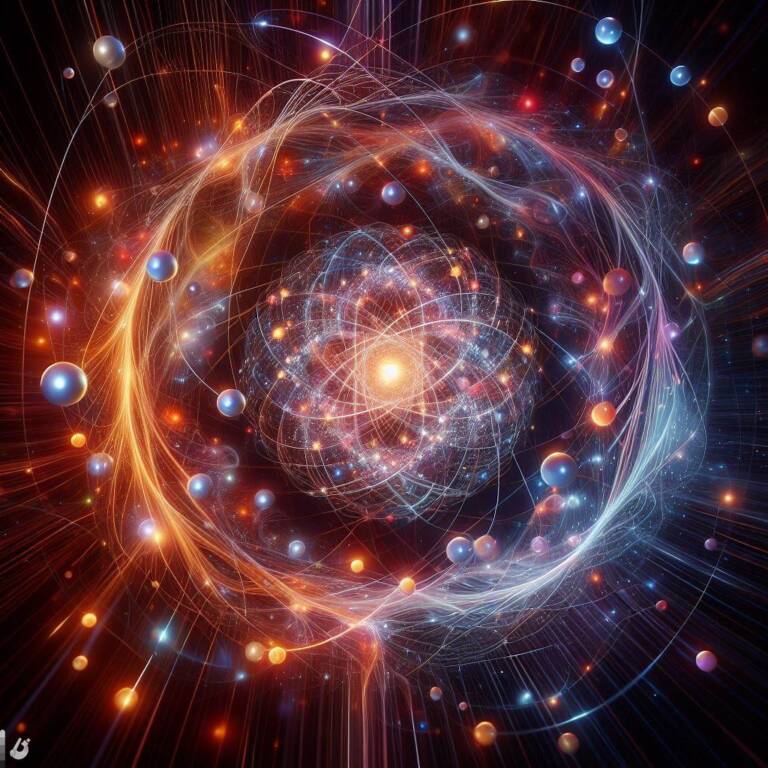The quantum battery may be the solution to the need for low-voltage fast charging

In a new proof-of-principle experiment, researchers have demonstrated how a strange quantum effect can lead to batteries that charge faster and more efficiently, upending cause and effect, according to research published December 14 in the journal Physical Review Letters.
This curious quantum effect leads to a loading that apparently breaks the principle of causality,
Causality, or the relationship between cause and effect, is not always simple in quantum mechanics, the strange rules that govern the world of the infinitesimally small. What we will try to explain to you next is not at all simple, and forgive us if, sometimes, we are not immediately intuitive in explaining the tested theory to you.
“Normally, if event A comes first and causes event B, it is assumed that B cannot cause A at the same time,” co-first author Yuanbo Chen, a physicist at the University, told Live Science. of Tokyo. “However, recent advances in theoretical physics propose that, in certain contexts, scenarios in which 'A causes B' and 'B causes A' could simultaneously be true.”
The principle of quantum superposition allows particles to exist in many different states at the same time, at least until they are observed and “choose” a state to land in.
Any property of a quantum object (such as its momentum, its position, or, in the famous case of Erwin Schrödinger's hypothetical cat, whether it is alive or not) can exist in superposition – a probabilistic set of every possible state which collapses into a defined result only when the object is observed.
This awareness has led physicists to conduct all kinds of bizarre experiments that contradict our intuitive notions of what should be possible, including ones in which a single particle can exist and not exist in many different places at the same time.
But superposition not only undermines our intuitive sense of space, but also our sense of causality. In 2009, physicists used a device called a quantum switch to observe a phenomenon called indefinite causal order. By sending a particle of light, or photon, along a pair of divergent paths, physicists caused it to split into two possible versions of itself: one that took the first path and one that took the second.
Then, depending on the path followed by the photon, the physicists applied two different processes in a different order depending on the path. The result was a photon with confusing causality: it was in a quantum superposition in which both orders of events were true.
“Let's say we have two processes: A and B,” Chen said. “With a quantum switch, you can create a superposition of (first apply A and then B) and (first apply B and then A).”
Chen and his colleagues wondered whether it was possible to incorporate this system into a quantum battery, a proposed device that could theoretically store photon energy and charge faster than conventional electrochemical batteries.
They compared three charging methods: connecting two chargers to one battery sequentially, simultaneously, or in an overlap that made it impossible to distinguish the order of insertion.
Their calculations showed that the superposition method would allow a low-power, causal probability distribution charger to deliver more energy more efficiently than a conventional high-power charger.
They followed up their calculations with a proof-of-principle experiment using light. By sending photons through a quantum switch with two possible paths, the researchers split the light particles into two possible versions of themselves, each traveling a different path.
Then, after subjecting the light to two inputs that polarized it in a different order (A then B or B then A) based on the path it was traveling, the researchers ultimately measured the polarization and found that the individual photons were were distributed randomly on the different routes.
After testing their protocol, the scientists say their next challenge is to create a physical quantum battery that can hold a charge. However, the first experimental proof of a quantum battery was only published last year, so it may not happen anytime soon.
“Given the current situation of limited experimental efforts and ongoing theoretical exploration in the realm of quantum batteries, it is difficult to estimate a precise timeline for obtaining conclusive results,” Chen said.

Thanks to our Telegram channel you can stay updated on the publication of new Economic Scenarios articles.
The article Quantum battery may be the solution to the need for low-voltage fast charging comes from Economic Scenarios .
This is a machine translation of a post published on Scenari Economici at the URL https://scenarieconomici.it/la-batteria-quantistica-puo-essere-la-soluzione-alla-necessita-di-ricarica-rapida-a-bassa-tensione/ on Sun, 24 Dec 2023 08:00:35 +0000.
